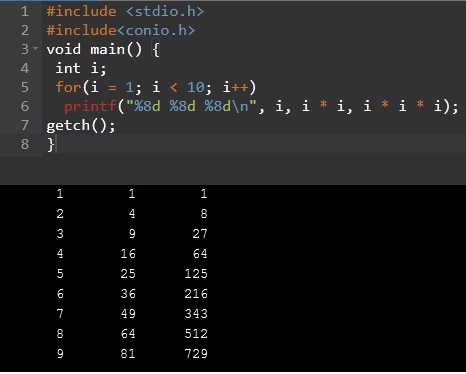In this example, the initial and final loop variable i (of type int) are 1 and 10, respectively. The increment expression, i += 1, increases the value of i by 1. Thus, i assume values 1, 2, 3, 4, and 5.
Note that the final expression, i <= 10, evaluates as false for the next value of 1, i. e., 11. The printf statement, which executes for each value of i, prints the value of i and i * i followed by a newline. The output is as shown below.
#include<stdio.h>
#include<conio.h>
void main() {
int i;
for(i = 1; i < 10; i++)
printf("%8d %8d %8d\n", i, i * i, i * i * i);
getch();
}

 Dinesh Thakur holds an B.C.A, MCDBA, MCSD certifications. Dinesh authors the hugely popular
Dinesh Thakur holds an B.C.A, MCDBA, MCSD certifications. Dinesh authors the hugely popular